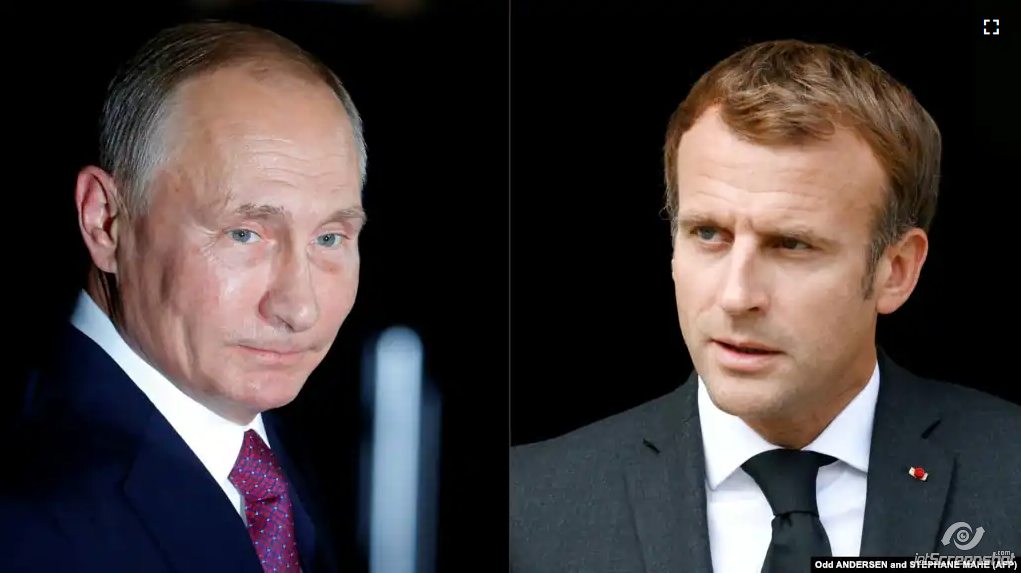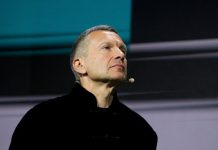By Kseniya Kirillova, for CEPA
While the French president’s statement challenged previously held taboos about NATO’s confrontation with Russia and was nervously received in Moscow, the Kremlin has long tussled with the Élysée and regularly boasts of interfering in France’s national interests.
Russian officials strongly reacted to Macron’s words, saying they “threaten the onset of a third world war.” Moscow also requested a UN Security Council meeting on March 22, during which it “expects explanations from NATO countries regarding the deceptive logic of the alliance.”
Dmitry Peskov, Vladimir Putin’s press secretary, told reporters that: “Macron continues to escalate France’s direct involvement in the war in Ukraine, which in no way corresponds to the interests of the French people.” Russia’s SVR intelligence service said on March 19 that France planned to send 2,000 troops and that they would be “legitimate targets” if they ever “came to ‘Russia world’ [the occupied territories] with a sword.”
At the same time, Russian propagandists openly acknowledged that the regime is facing off with France on a number of fronts. The newspaper Izvestia, which is close to the Kremlin, said Macron’s comments were a response to a “harsh confrontation” between the two nations “in several territories.”
It attributed the French leader’s words to what it termed French defeat in Africa, noting that the French military was forced to withdraw from Mali, Burkina Faso, Niger, and the Central African Republic, while Russian military and economic cooperation with African nations “is rapidly advancing.”
This narrative of “Macron’s revenge” has become a key theme in Russian propaganda, which presents his rhetoric in the context of arguments that Paris is “trying to score political points” and secure a leading position in the European Union (EU.)
The propagandists acknowledged they were “striking France” long before Macron’s words, and cited Putin’s decision allowing Rosbank to acquire shares of Russian companies owned by the French financial group Société Générale as an example.
In turn, France has accused Russia of spreading disinformation after Kremlin-friendly media reported that 60 French military personnel, whose presence they claimed was “secretly sanctioned by their government,” had been killed by a missile strike near Kharkiv on January 17.
Away from the claims and counter-claims of the war, it is undisputed that France has pursued policies that have deeply irritated the Kremlin.
A significant concern revolves around the burgeoning relationship between France and Armenia. In late February, Armenian Prime Minister Nikol Pashinyan visited Paris before announcing his country’s decision to freeze its participation in Moscow’s post-Soviet Collective Security Treaty Organization (CSTO.)
This was followed by a visit to Yerevan by French Armed Forces Minister Sébastien Lecornu, the signing of defense agreements, and the expulsion of Russian FSB border guards at Armenia’s Zvartnots International Airport.
Russian commentators openly acknowledge that cooperation between France and Armenia undermines Moscow’s interests, as it “blocks the implementation of the Russian North-South transport corridor.” It is also strongly opposed to recent Armenian statements on EU membership.
It is important for Moscow to have access to the South through the Zangezur route to Azerbaijan, to help compensate for its lack of access to the West, but it has so far failed to persuade Armenia to unblock it.
The repercussions of France’s close cooperation with Armenia have included a sharp deterioration in relations with Azerbaijan. Towards the end of 2023, Baku expelled two employees from the French embassy.
Then, after the French Senate passed a resolution supporting the territorial integrity of Armenia in January, an Azerbaijani parliamentary committee urged its government to impose sanctions, sever all economic ties with Paris, and take steps to recognize the independence from France of Kanaky, Maohi Nui and Corsica.
The tension between France and Azerbaijan was celebrated in Moscow. Life.ru, a Kremlin-funded propaganda channel, said sanctions would create opportunities for Russian companies, while resources spent on broader conflicts in French propaganda would mean “fewer resources will be allocated specifically for Russophobia.”
Wars and instability benefit the Kremlin because “the more conflicts there are in the world, the harder it is for Western propaganda to explain to public opinion why 18,000 sanctions were imposed against Russia,” and none against participants in other conflicts, Life.ru said.
But while the South Caucasus are a significant interest for the Kremlin — which is determined to keep the anti-Kremlin Pashinyan isolated — Ukraine matters far more.
Moscow has long asserted that the war in Ukraine is “between Moscow and the collective West.”
Countries, like individuals, should be careful what they wish for. Macron’s decision to stoke uncertainty in the Kremlin’s mind over the possible arrival of Western troops, for example, if Odesa was threatened, has clearly worried Putin and his aides just when they felt the war was going their way.
The splenetic Kremlin response should perhaps be seen for what it is; a scream of the same primal rage that triggered its war of aggression in the first place.
By Kseniya Kirillova, for CEPA
Kseniya Kirillova is an analyst focused on Russian society, mentality, propaganda, and foreign policy. The author of numerous articles for CEPA and the Jamestown Foundation, she has also written for the Atlantic Council, Stratfor, and others.
Europe’s Edge is CEPA’s online journal covering critical topics on the foreign policy docket across Europe and North America. All opinions are those of the author and do not necessarily represent the position or views of the institutions they represent or the Center for European Policy Analysis.





